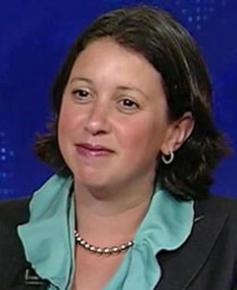Hit job on our academic work
On April 30, blogger Naomi Schaefer Riley attacked the work of several African American graduate students, as well as African American studies in general, in a post on the Chronicle of Higher Education's Brainstorm blog.
The right-wing post--and a subsequent defense by Schaefer Riley--caused a firestorm at the Chronicle website and provoked outraged responses from several academics and bloggers, as well as the faculty of the African American Studies Department at Northwestern University. In just a few days, a petition in defense of the students and African American studies garnered more than 6,000 signers.
In this statement, , and , the three graduate students who Schaefer Riley attacked, respond.
AS GRADUATE students in Northwestern University's Department of African American Studies, we were thrilled with the informative and important article by Stacey Patton for the Chronicle of Higher Education that looked at the state of our discipline through the lens of an important academic conference bringing together the 11 African American studies doctoral programs together for the first time.
So imagine our surprise when almost two weeks after the Chronicle's original article appeared, the Chronicle website published a lazy and vitriolic hit piece by blogger Naomi Schaefer Riley that summarily dismisses our academic work while debasing us as something less than "legitimate scholars." Riley then holds up our research as the reason African American studies as a discipline should be "eliminated."
Instead of taking her own advice given to her readers to "just read the dissertations," Riley displays breathtaking arrogance and gutless anti-intellectualism by drawing such severe conclusions about our work and African American studies as a whole based on four or five sentence synopses of our dissertation projects. In fact, Riley has never read our dissertations, as they are in process. Nor has she read a chapter or even an abstract of our work, but that does not stop her from a full throttle attack on our scholarship and credibility.

When Rick Santorum took his failed campaign for the Republican nomination for President to Iowa, he invoked Blacks on welfare as a campaign issue--in a state where African Americans make up only 2 percent of the population. He said, "I don't want to make Black people's lives better by giving them somebody else's money. I want to give them the opportunity to go out and earn the money and provide for themselves and their families."
When Newt Gingrich had trouble drumming up interest in his failed political campaign, he began referring to President Barack Obama as the "food-stamp president" and then told the NAACP that he wanted to address their convention to counsel "why the African American community should demand paychecks and not be satisfied with food stamps."
One can only assume that in a bid to not be "out-niggered" by her right-wing cohort, Riley found some Black women graduate students to beat up on. Despite her attempts to silence us personally, and indeed the discipline as a whole, her exhortations confirm the need for the vigorous study and investigation of Black life in the United States and beyond.
RILEY DESCRIBES our work as driven by "conspiracy theories," "liberal hackery" and "left-wing victimization claptrap," all in an attempt to deny the persistence of racism in American society. Her racial-justice calendar ends in 1963, the year before the Civil Rights Act of 1964 was passed and two years before the Voting Rights Act was passed in 1965.
According to Riley's calendar, the legislative fruit of the southern civil rights movement meant the end of American racism in any institutional capacity. Thus, Riley, in betraying her own bigotry, declares that there are "some fundamental problems in Black culture that cannot be blamed on white people," while at the same time imploring us to stop "blaming the white man."
As Black people living in the United States we do not need conspiracy theories or white bogie men to explain the disparities that separate and distinguish the life chances of white people compared to those of African Americans, even with a Black president sitting in the White House. We understand that these conditions are driven and shaped by racism and real white men who exercise power and influence in the economic, social and political institutions that govern this nation.
Before the dirt has fully come to rest on the grave of Trayvon Martin, Black men and women, in the academy or outside of it, have never needed Harvard-educated white women to lecture us about the conditions in the communities we live in--and we certainly do not need it now.
Our work is not about victimization; it is about liberation. Liberating the history, culture and politics of our people from the contortions and distortions of a white supremacist framework that has historically denied our agency and subjectivity as active participants in the making of the world we live in.
For the past 40 years, Black studies has been instrumental in transforming higher education into a more inclusive, competitive and rigorous intellectual enterprise. This is a fact. The contributions are irrefutable. But the extent to which Riley chose to assail Black studies and the scholarship of Black studies doctoral students is indicative of the desperate tactics commonly used by media pundits. What is she so afraid of?
Finally, shame on the Chronicle of Higher Education. As students we welcome the vigorous interrogation and examination of our work that comes with life in the academy. We do not welcome smug attacks by lazy bloggers, in your employment, who resort to racial caricature in a pitiful attempt to drum up controversy and interest in an otherwise underwhelming and pedestrian career. Riley's rant is typical matter for personal blogs and anonymous postings in comment sections.
The Chronicle's complicity in Riley's anti-intellectualism and the pernicious attack on Black scholars and Black culture is what is most offensive. It is revealing that such an esteemed publication would abandon its journalistic and academic standards.
Keeanga-Yamahtta Taylor
La Tasha B. Levy
Ruth Hays


